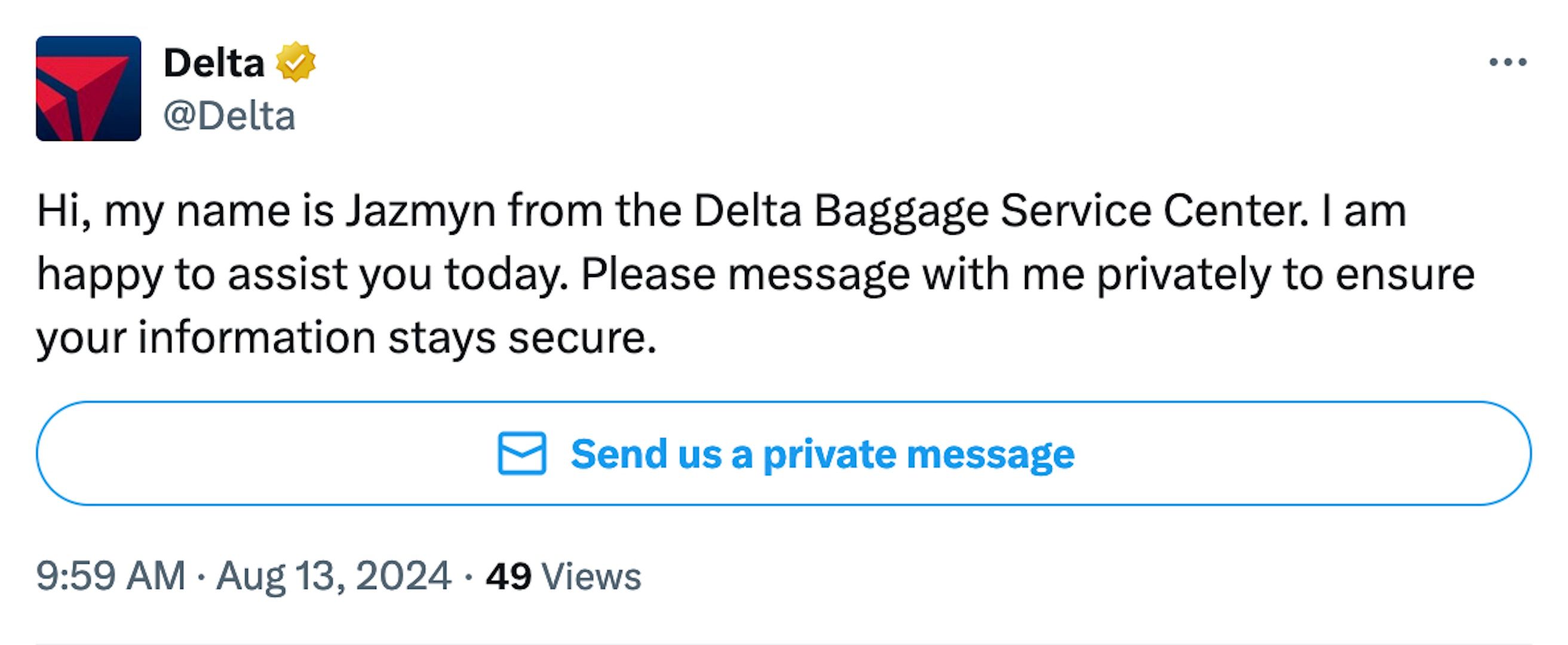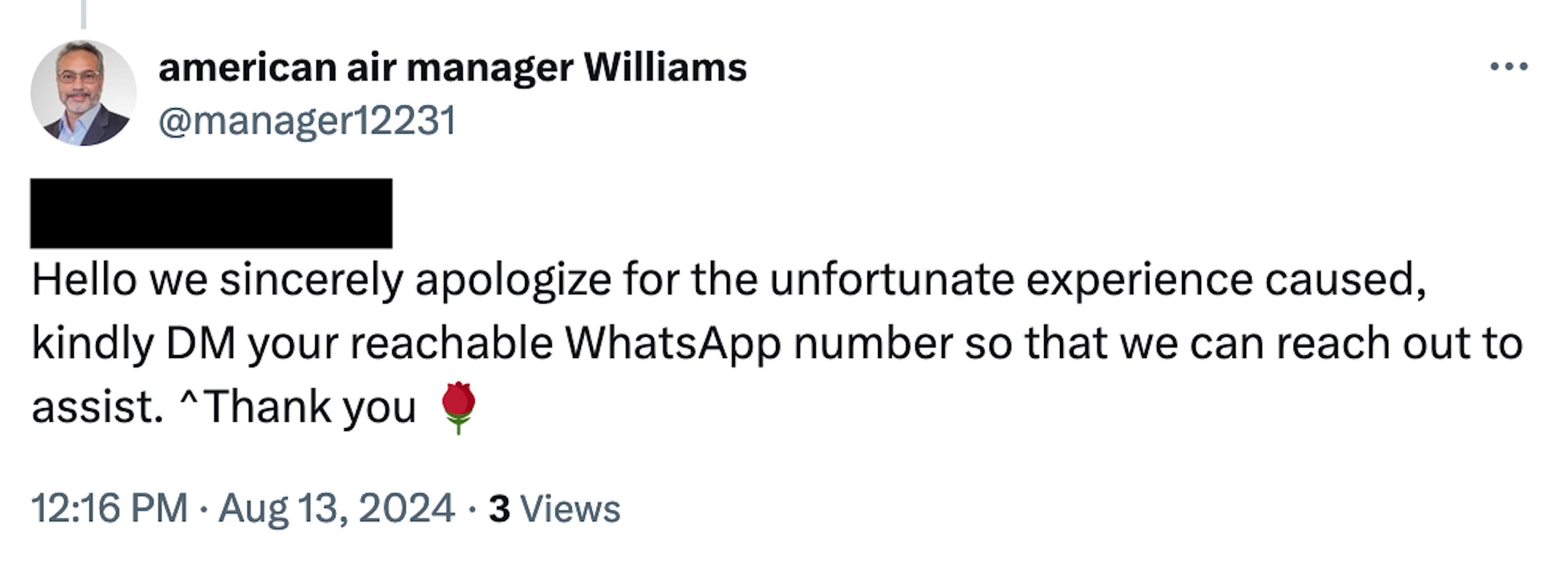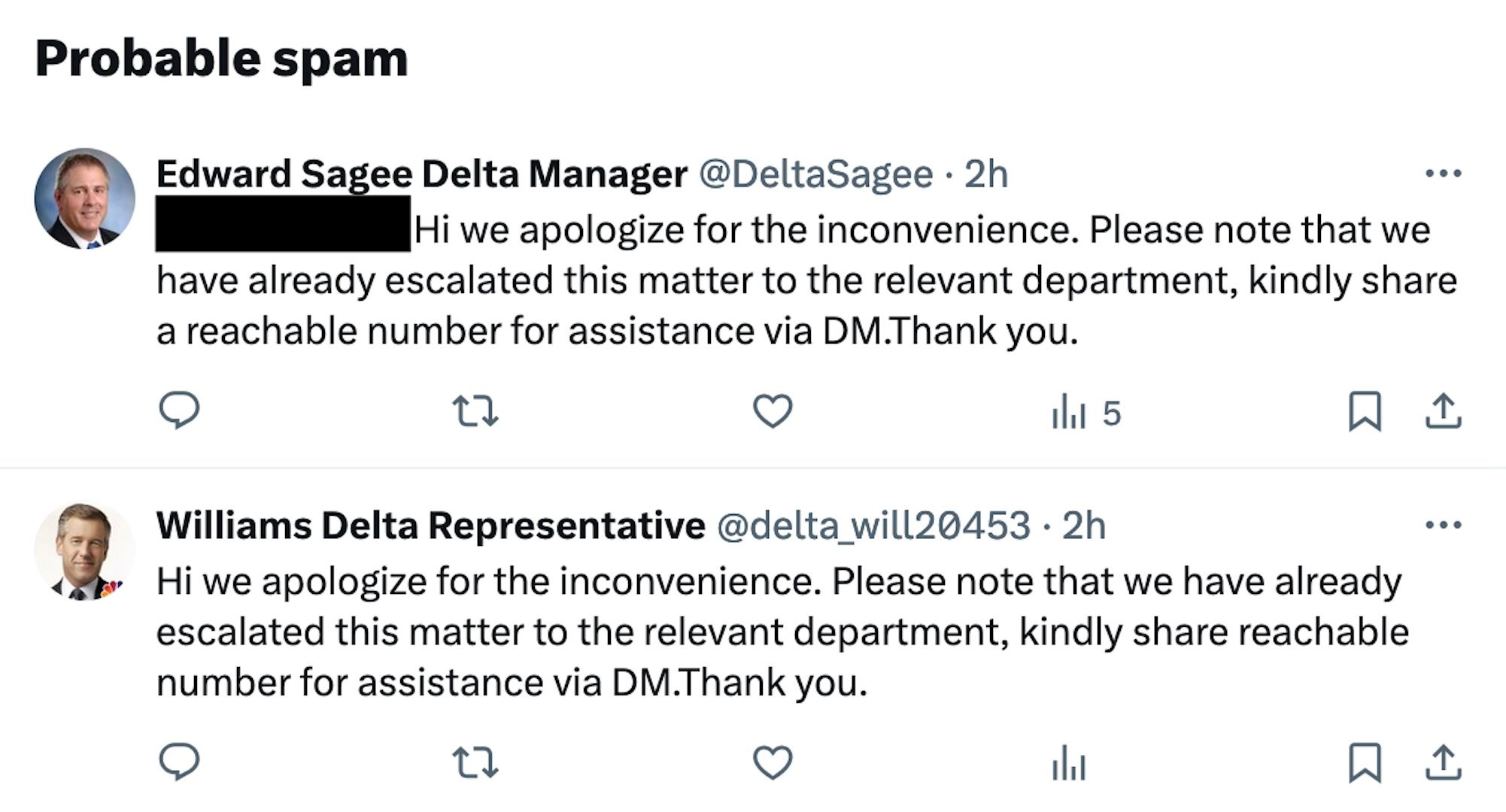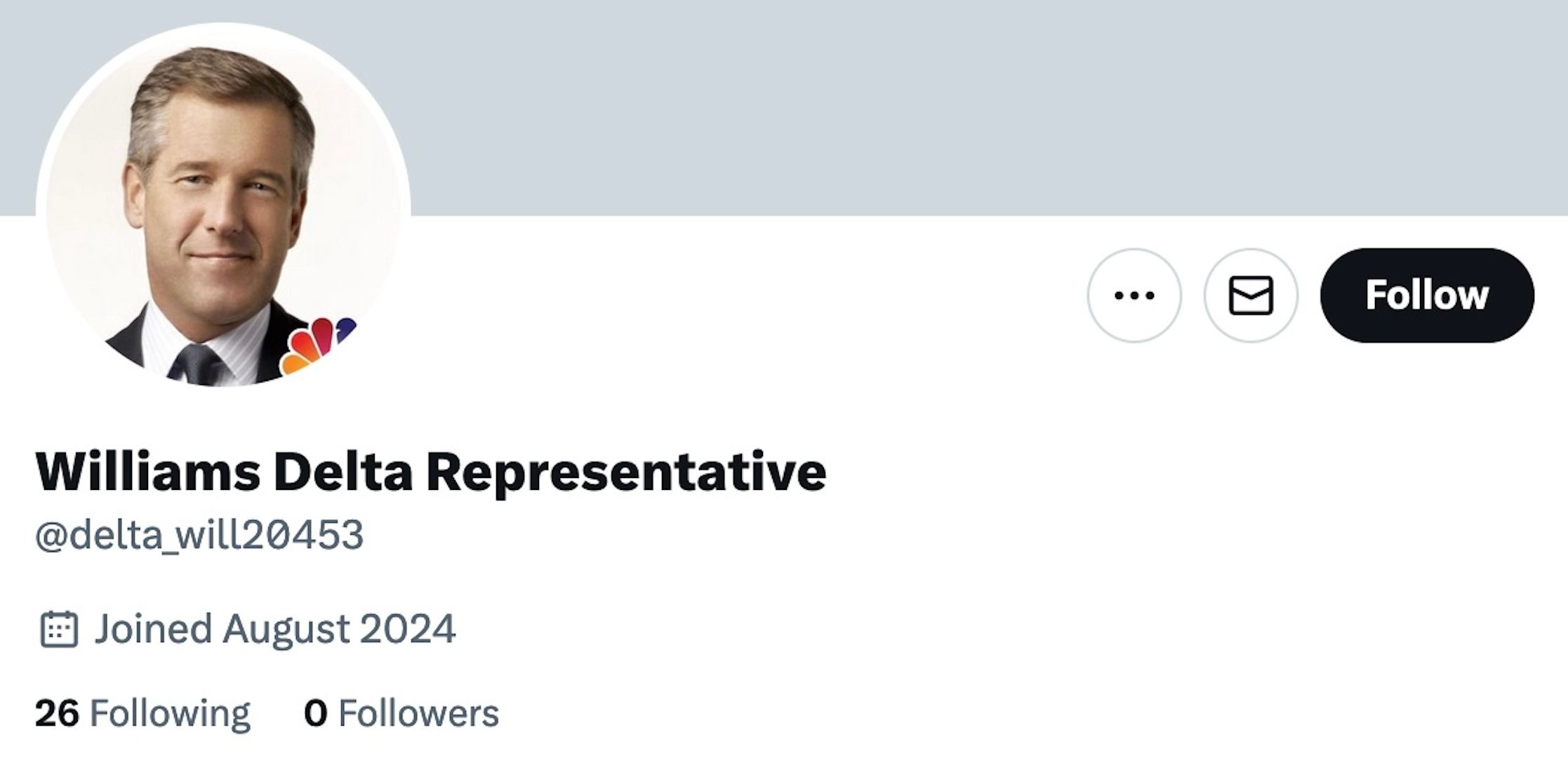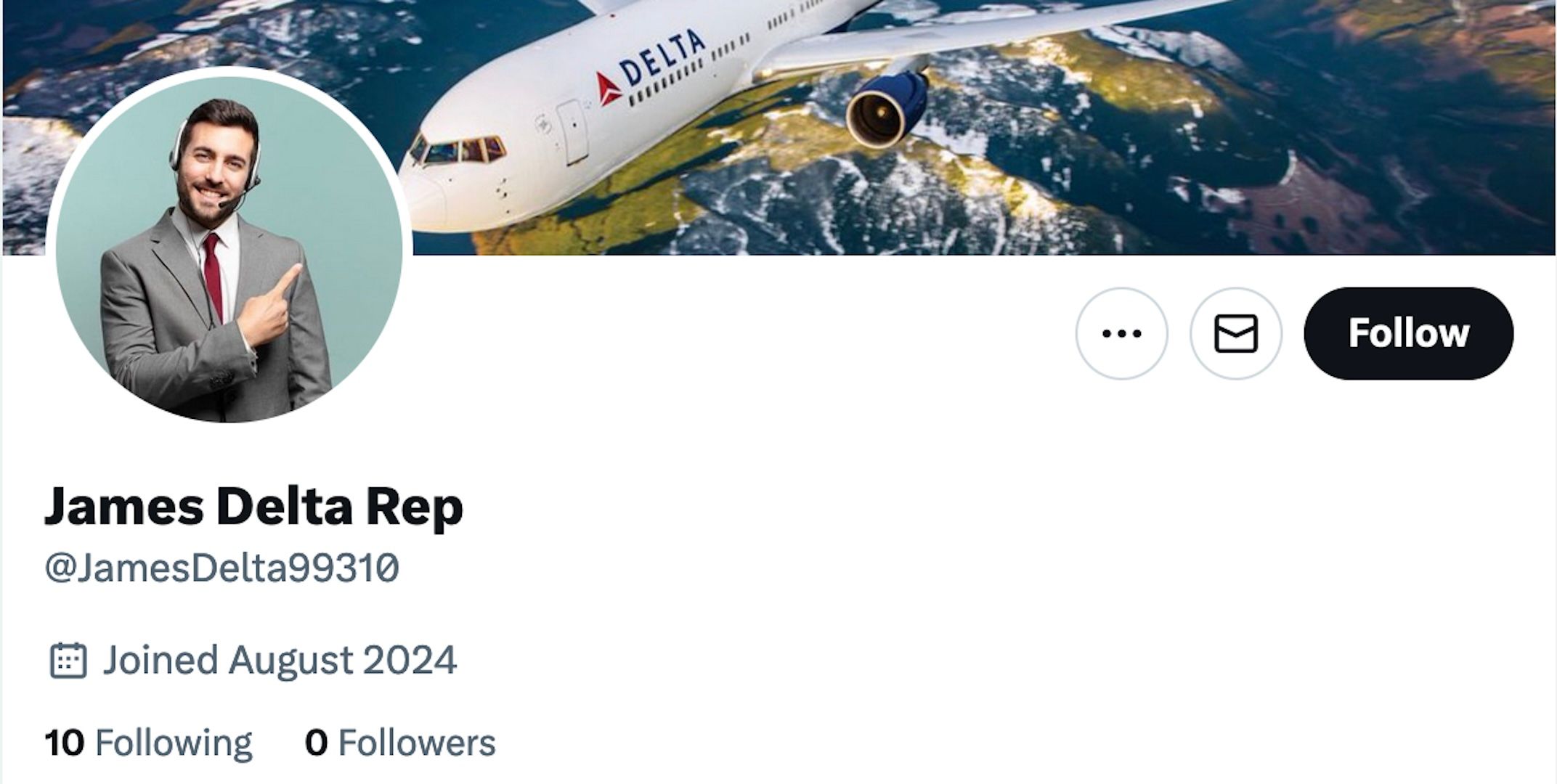Key Takeaways
- Scammers are impersonating airline representatives to trick customers into giving away personal information.
- Airlines will only reach out via official social media accounts, not individual accounts for representatives.
- Pay attention to the account handles, photos, join dates, and what they’re asking for. Don’t trust anything that seems off.
There seems to have been a recent uptick in fake social media accounts pretending to be airline representatives. This is yet another way that scammers are trying to take advantage of unknowing people. Let’s talk about some of the telltale signs so you can be in the know.
Why Pretend Like This?
Much like scam phone calls and their digital counterparts, phishing emails and social media scam bots aim to trick anyone they can into handing over private information or installing malicious software (sometimes both). The end goal is the utilization of that information or software as leverage to make money—by exploiting victims directly, appropriating or stealing their identity, selling their information off, etc.
Social media scammers have started creating loads of bots impersonating airline representatives in order to do just that.
How to Spot a Phony Representative
If you’ve been on any social media platform long enough, you’ve likely developed an innate sense for spambots—like a “smell test” of sorts. But even the most studious of us can make a mistake when we’re stressed (such as when dealing with a rough airline experience), and one mistake is all it takes.
The vast majority of airlines do not provide individual agents with separate official company accounts for the sake of customer service. If the airline in question is going to reach out to you, it’s almost certainly going to be the primary one. Or possibly an official alternate account with “help” in the name.
Official company accounts on many social media platforms should have some form of verification attached to them (i.e. a yellow/gold checkmark or something similar). If the account responding to your grievance isn’t verified, it’s a bot.
Pay attention to what the account is asking for. It’s not uncommon for a representative to request more details, but they should ask for you to share via direct message (rather than out in the open for all to see). Odd requests like a WhatsApp number are also 100 percent not legit.
Probable fakes tend to get automatically flagged as spam. However, the platform may not catch all of them, and it’s not always easy to see such flags when receiving a direct reply.
Ignore the account’s name and look at the actual handle. Handles like “delta_will20453” are definitely fake. Sometimes, the account photo can be a giveaway, too.
Check the account details page and look at when the account was first made. Scam accounts are often extremely “young” since scammers constantly have to make new ones as other attempts are reported and removed.
These days, it’s more important than ever to be skeptical of anyone asking for your information, even if, at first glance, things seem to be on the up-and-up. If something ever doesn’t “feel” right, briefly take a step back and ponder the situation and the sender. And if you’re still not sure, use the company’s official social media account or website to find the proper contact info and reach out to customer service that way.


